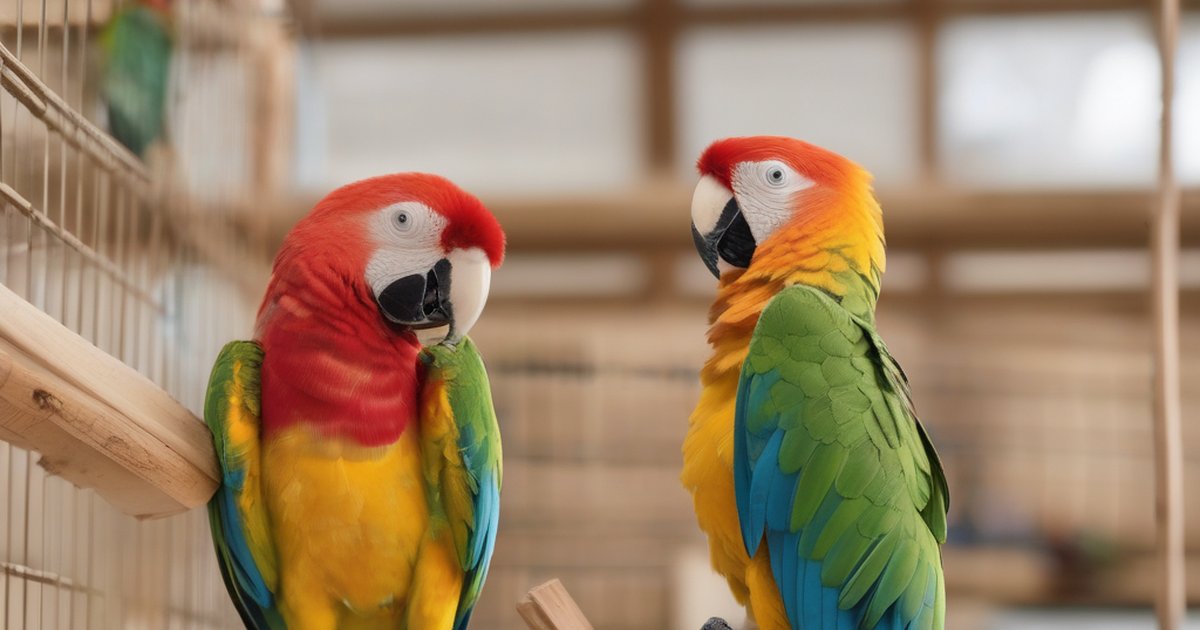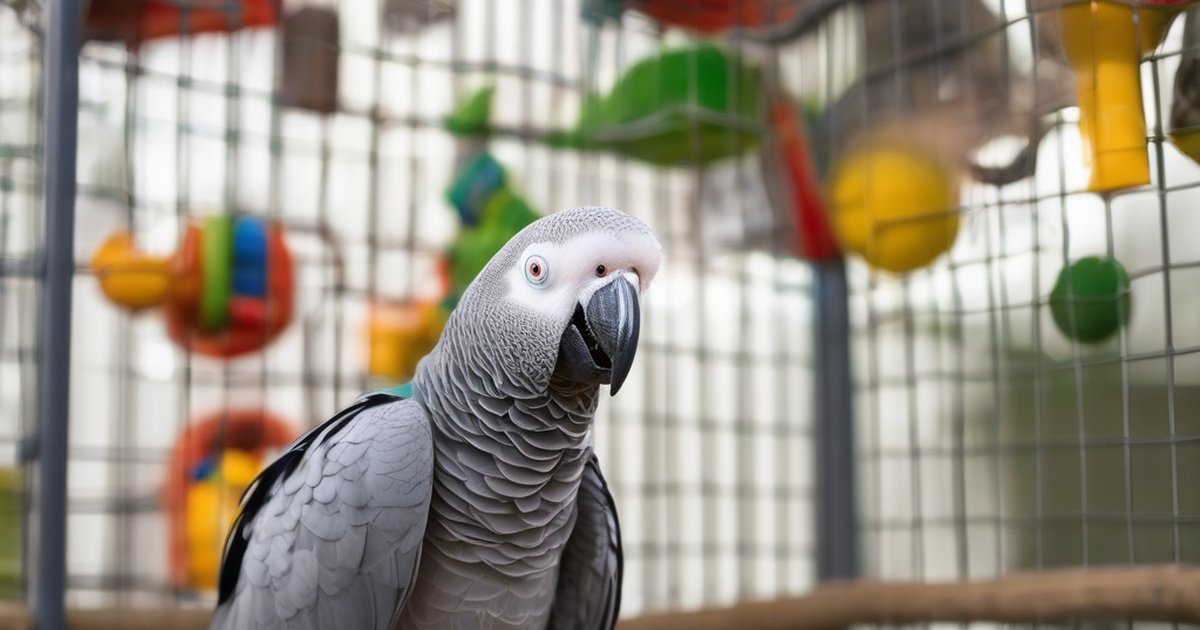Introduction
If you share your home with a parrot, you already know how clever, social, and affectionate these feathered friends can be. But new research reveals that our companion parrots may also be quietly generous, helping their flock-mates—whether friends or strangers—without any expectation of reward. This surprising glimpse into parrot empathy and prosocial behavior adds a new dimension to our understanding of their social world and offers important lessons for parrot owners everywhere.
While much has been written about the intelligence of parrots, especially their mimicry and problem-solving abilities, the emotional and social sides of their personalities are only now coming into scientific focus. The latest study from Brucks et al., published in Scientific Reports in January 2025, explores a fascinating question: Are parrots altruistic, and what drives their willingness to help others?
Research Background
Scientists have long known that some mammals—like apes, dolphins, and dogs—can show prosocial behaviors, helping others even when there is no direct benefit to themselves. In birds, however, such behaviors have been less documented and often assumed to be rare or limited to certain species. Parrots, with their complex social structures and cognitive skills, have been prime candidates for deeper investigation.
What sets this study apart is its focus on a broad range of parrot species, each with distinct social lifestyles—from tightly bonded pairs to large, communal flocks. Previous research has focused mainly on mammals or on a single parrot species, leaving a gap in our understanding of how widespread and flexible altruism might be among birds. The research team sought to bridge this gap by systematically testing prosocial tendencies across four different parrot species.
Study Details
To uncover the roots of generosity in parrots, researchers designed a behavioral experiment called a “prosocial choice test.” In this setup, parrots could choose to deliver a treat—such as a favorite seed or nut—to another group member, with no reward for themselves. The experiment was carefully controlled to ensure that the only motivation for sharing was the welfare of the companion bird, not self-interest.
Participants included:
- Blue-headed macaws (Primolius couloni): 12 individuals (6 males, 6 females)
- African grey parrots (Psittacus erithacus): 14 individuals (8 males, 6 females)
- Cockatiels (Nymphicus hollandicus): 10 individuals (5 males, 5 females)
- Green-winged macaws (Ara chloropterus): 12 individuals (6 males, 6 females)
Each species was tested in small groups within their familiar enclosures, and each parrot was given repeated opportunities to help its group-mates over several weeks. The researchers recorded whether the parrots chose to deliver food to companions, and if so, to whom—friends, strangers, or both.
Key Findings
Primary Results
The results were remarkable: All four parrot species routinely chose to give food to their group-mates, even when they gained nothing themselves. On average, parrots delivered food to others in 60–75% of trials, with male parrots from group-nesting and cooperative chick-rearing species being the most generous. In blue-headed macaws and green-winged macaws, for example, males shared food in 78% of opportunities, compared to 62% among females.
African grey parrots, known for their intelligence and complex flock dynamics, also demonstrated high levels of altruism, with males sharing in 72% of trials. Cockatiels, typically living in large flocks, helped in 68% of trials, with little difference between males and females.
Secondary Findings
Interestingly, the parrots’ generosity was not limited to their closest friends or family members. Across all species, individuals helped both familiar companions and non-related peers with similar frequency. This suggests that parrots’ social instincts are broadly tuned—not just to kin but to the wider group.
The study also noted that species with cooperative breeding systems—where multiple adults care for chicks—showed the highest rates of prosocial behavior. This finding hints at evolutionary links between a bird’s natural social structure and its tendency to help others. The researchers believe this flexibility and empathy are key to the survival of highly social parrot species in the wild.
Implications for Pet Owners
What This Means for You
For parrot owners, these findings are more than just an interesting tidbit—they carry practical significance. Parrots are not only intelligent but deeply social animals with a natural drive to interact, cooperate, and even help others. This means that parrots kept in isolation or without adequate social stimulation may become bored, stressed, or lonely.
If you have a single parrot, consider providing extra opportunities for social interaction—whether it’s through safe introductions to other birds, supervised playdates, or simply spending more quality time together. For those with multiple parrots, observe their social dynamics and encourage positive flock behaviors, such as sharing toys or treats (always under supervision).
Enrichment activities that allow parrots to “help” or interact with you (like training, foraging games, or simple tasks) can satisfy their natural prosocial tendencies and prevent behavioral issues. Interactive puzzle feeders that encourage sharing and cooperation can help recreate the social feeding behaviors observed in this study. Recognize your bird’s need for companionship, and try to foster an environment where they can express their social nature safely and positively.
When to Consult Your Veterinarian
While most parrots thrive on social interaction, sudden changes in behavior—such as withdrawal, aggression, excessive vocalization, or feather plucking—may signal stress, loneliness, or underlying health problems. If your parrot shows any of these signs, or if you are concerned about introducing new birds or changing your flock’s social structure, consult with an avian veterinarian or certified avian behaviorist. They can provide tailored advice for your pet’s specific needs and help prevent common issues related to social stress.
Study Limitations
Like all research, this study had its constraints. The experiments were conducted in captive environments, which may differ from the wild in important ways. The sample size, while diverse, included only four species and a limited number of individuals per group. Additionally, long-term effects of prosocial behavior—such as its impact on group harmony or individual well-being—were not explored. Further research will help clarify how these findings apply to other parrot species and real-world settings, including home environments.
Bottom Line
This landmark study shows that parrots are not just clever mimics—they are compassionate, capable of genuine generosity toward friends and strangers alike. For pet owners, the message is clear: parrots need social connection and opportunities to interact, not just with humans but ideally with other birds. Understanding and supporting your parrot’s social and emotional needs is essential to their health and happiness.
Encourage your parrot’s natural prosocial tendencies with plenty of enrichment, interaction, and—where safe and appropriate—companionship. Monitor their behavior for signs of stress or loneliness, and seek professional guidance if you have concerns. By appreciating the emotional complexity of these remarkable birds, you can create a more fulfilling life for your feathered companion.
Recommended Products
Based on the research findings discussed in this article, we’ve carefully selected these top-rated products to help you support your parrot’s natural social and prosocial behaviors. These products are chosen for their quality, customer satisfaction, and alignment with the scientific evidence presented.
Natural Foraging Parrot Toys with Food Hidden
Bonka Bird Toys Foraging Star Parrot Toy
Super Bird Creations Foraging Pouch Bird Toy
Disclosure: We only recommend research-based products that support your pet’s health. As an Amazon Associate, we earn from qualifying purchases at no additional cost to you—helping us fund our mission to provide cutting-edge research to all pet lovers.
Disclaimer
This article summarizes peer-reviewed research for educational purposes. Always consult with your veterinarian for personalized advice about your pet’s health and behavior.


